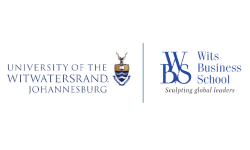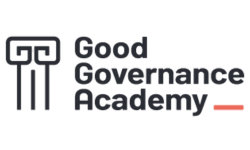INPAGE MENU
Overview
ISSN
not available (PRINT)
3078-2252 (ONLINE)
Focus and scope
The journal Advances in Corporate Governance (ACG) creates an intellectual environment that supports and promotes academic inquiry facilitating global collaboration on governance and governance-related research. ACG’s intent is to attract, collaborate, share and build knowledge to further understand business-related issues, increase awareness on governance, and improve innovation in business. ACG views research as the platform and the first step in developing effective corporate governance practices in improving positive global outcomes through organisations. ACG, in addition to creating awareness, producing research, and enabling discourse on issues pertaining to corporate governance, will highlight the work of resolute individuals that intend to foster and drive good corporate governance in their organisations, communities, and countries.
If your research aligns with this description and is aimed at improvements in the field of corporate governance and innovation in business in the field of management sciences, we would like to encourage your submission. Broad topics of interest include
- outcomes-based governance;
- conscious corporate leadership;
- value creation in a sustainable manner;
- combining effective thinking and corporate reporting, including sustainability reporting and integrated reporting;
- digitalisation as mechanism for corporate governance; and
- interconnections between organisational culture, quality, ethics of decision-making, and the operational efficacy and performance within organisations.
Sustainable Development Goals
The journal, in terms of its focus and scope, and, by extension, by the articles that are published in it, aims to respond to the following SDGs:
- Goal 4 – Ensure inclusive and equitable quality education and promote lifelong learning opportunities for all: Equitable quality education and lifelong learning is at the heart of ACG, as information is established and disseminated creating awareness and providing solutions for improved governance in the education.
- Goal 5 – Achieve gender equality and empower all women and girls: ACG strives to drive conscious corporate leadership – ACG will welcome research that examines gender equality and the empowerment of women and girls, and the role corporate governance can play in uplifting the marginalised.
- Goal 8 – Promote sustained, inclusive, and sustainable economic growth, full and productive employment, and decent work for all: At the heart of ACG is goal 8 – the need to ensure safe and equitable workplace allows for economic growth that empowers and ensures decent work for all. Research in this area aligns with ACG – its drive for conscious corporate leadership.
- Goal 16 – Promote peaceful and inclusive societies for sustainable development, provide access to justice for all and build effective, accountable, and inclusive institutions at all levels: ACG strives to drive conscious corporate leadership, meaningful discussion and research in the field of corporate governance, innovation in business. Climate competent leadership forms the basis of ACG.
- Goal 17 – Strengthen the means of implementation and revitalize the Global Partnership for Sustainable Development: ACG will provide a platform for the coming together of researchers and practitioners locally and internationally establishing partnerships for the realisation of sustainable development.
Historic data
Over the last three decades Professor Mervyn King has had the privilege to chair the Eminent Persons Group at the United Nations on Governance and Oversight, the Global Reporting Initiative, the International Integrated Reporting Council, the Integrated Reporting Committee of South Africa, and the King Committee on Corporate Governance. Professor King has also participated in corporate governance advisory boards in East Asia and at the World Bank.
As modest, as he is Professor King does not record the above not out of self-praise but to indicate that because of his international appointments his associations with universities and business schools abroad, in the USA, UK, Europe, Far East and Australia are long lasting.
It is that association which Professor King has voluntarily given to the Good Governance Academy to act as a catalyst to share governance and business science matters of extreme public interest on a collaborative basis. It is from these collaborative relationships and the need to expand the academic reach of good corporate governance that the Journal of Advances in Corporate Governance (ACG) in collaboration with Good Governance Academy and Wits Business School was conceived. The ACG will now provide for a forum to share meaningful research and information on critical governance, sustainability, reporting and other business science issues through global collaboration blending practice and academia.
Publication frequency
The journal publishes one issue each year. Articles are published online when ready for publication and then printed in an end-of-year compilation. Additional issues may be published for special events (e.g. conferences) and when special themes are addressed.
Open access
This is an open access journal which means that all content is freely available without charge to the user or his/her institution. Users are allowed to read, download, copy, distribute, print, search, or link to the full texts of the articles, or use them for any other lawful purpose, without asking prior permission from the publisher or the author. This is in accordance with the Budapest Open Access Initiative (BOAI) definition of open access. Learn more about the journal copyright, licensing and publishing rights.
Review process
The journal has a double-blinded peer review process. Manuscripts are initially examined by the editorial staff and are sent by the Editor-in-Chief to two expert independent reviewers, either directly or by a Section Editor. Read our full peer review process.
Membership
AOSIS is a member and/or subscribes to the standards and code of practices of several leading industry organisations. This includes the Directory of Open Access Journals, Ithenticate, Open Access Scholarly Publishers Association, CrossRef, Portico and the Committee on Publication Ethics (COPE). Learn more here.
DHET Accreditation
We are working closely with the DHET Accreditation services to ensure that articles published in the journal will be available and accredited when appropriate.
Indexing Services
We are working closely with relevant indexing services to ensure that articles published in the journal will be available in their databases when appropriate.
Archiving
The full text of the journal articles is deposited in the following archives to guarantee long-term preservation:
- AOSIS Library
- Portico
- South African Government Libraries
AOSIS is also a participant in the LOCKSS (Lots of Copies Keep Stuff Safe) initiative. LOCKSS will enable any library to maintain their own archive of content from AOSIS and other publishers, with minimal technical effort and using cheaply available hardware. The URL to the LOCKSS Publisher Manifest for the journal is, https://goodgovernancejournal.org/index.php/acg/gateway/lockss. Please inform us if you are using our manifest as we would like to add your name to the list above.
Journal Impact
A journal's Impact Factor was originally designed in 1963 as a tool for libraries to compare journals, and identify the most popular ones to subscribe to. It was never intended to measure the quality of journals, and definitely not the quality of individual articles.
The Impact Factor is a journal-level measurement reflecting the yearly average number of citations of recent articles published in that journal. It is frequently used as a proxy for the relative importance of a journal within its field; journals with higher Impact Factors are often deemed to be more important than those with lower ones. Therefore, the more often articles in the journal are cited, the higher its Impact Factor.
The Impact Factor is highly discipline-dependent due to the speed with which articles get cited in each field and the related citation practices. The percentage of total citations occurring in the first two years after publication varies highly amongst disciplines. Accordingly, one cannot compare journals across disciplines based on their relative Impact Factors.
We provide several citation-based measurements for each of our journals, if available. We caution our authors, readers and researchers that they should assess the quality of the content of individual articles, and not judge the quality of articles by the reputation of the journal in which they are published.
|
Citation-based measurement |
2023* |
|
Journal Impact Factor, based on Web of Science (formerly ISI) |
- |
|
- |
|
|
Source-Normalized Impact per Paper (SNIP), based on SCOPUS, Elsevier |
- |
|
- |
|
|
- |

